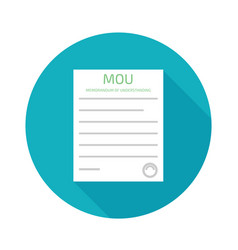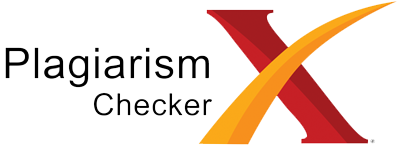Pengembangan Puzzle Game Tentang Keragaman Budaya Indonesia Berbantuan Interactive Whiteboard
Abstract
Abstract: The aim of this research is to produce a puzzle game about Indonesian culture product assisted by an interactive whiteboard that attracts students' attention, fosters learning motivation, is interactive, is fun, and students are directly involved in learning and are valid or appropriate for use in learning. Submission of material is packaged in an educational game in the form of dialogue, mission, challenges, and obstacles and when played by students will automatically learn about the diversity of Indonesian culture. This study uses a multimedia development model according to Lee & Owens with three stages of completion, that is assessment/analysis, design dan development. The result of the development puzzle game about Indonesian culture assisted by Interactive Whiteboard has received positive responses from media experts and material experts and is appropriate to use.
Abstrak: Tujuan dari pengembangan ini adalah menghasilkan produk Puzzle Game Keragaman Budaya Indonesia berbantuan interactive whiteboard yang menarik perhatian siswa, menumbuhkan motivasi belajar, interaktif, menyenangkan dan siswa terlibat langsung dalam pembelajaran yang layak untuk digunakan. Penyampaian materi dikemas didalam game edukasi berupa dialog, misi, tantangan dan hambatan dan ketika dimainkan oleh peserta didik otomatis akan belajar tentang keragaman budaya Indonesia. Penelitian ini menggunakan model pengembangan multimedia menurut Lee & Owens dengan tiga tahap penyelesaian, yaitu assessment/analysis, design dan development. Hasil pengembangan adalah Puzzle Game Keragaman Budaya Indonesia berbantuan Interactive Whiteboard mendapatkan respon positif oleh ahli media dan ahli materi serta layak digunakan.
Keywords
Full Text:
PDFReferences
Alessi, S. M., & Trollip, S. R. (2001). Multimedia for learning: Methods and development. Allyn & Bacon.
Dewi, G. P. F. (2012). Pengembangan game edukasi pengenalan nama hewan dalam bahasa inggris sebagai media pembelajaran siswa sd berbasis macromedia flash. Skripsi, Program Studi Pendidikan Teknik Informatika Fakultas Teknik Universitas Negeri Yogyakarta, Yogyakarta.
Ebner, M., & Holzinger, A. (2007). Successful implementation of user-centered game based learning in higher education: An example from civil engineering. Computers & Education, 49(3), 873–890.
Greiffenhagen, C. (2002). Out of the office into the school: electronic whiteboards for education. Produced by Oxford University Computing Laboratory, Http://Users. Comlab. Ox. Ac. Uk/Christian. Greiffenhagen/Papers/Boards/BOARDS. Pdf.
Hackbarth, S. (1996). The educational technology handbook: A comprehensive guide: Process and products for learning. Educational Technology.
Hennessy, S., Deaney, R., Ruthven, K., & Winterbottom, M. (2007). Pedagogical strategies for using the interactive whiteboard to foster learner participation in school science. Learning, Media and Technology, 32(3), 283–301.
Kau, M. A. (2017). Peran Guru dalam Mengembangkan Kreativitas Anak Sekolah Dasar. PROCEEDING SEMINAR DAN LOKAKARYA NASIONAL BIMBINGAN DAN KONSELING 2017, 1, 157–166.
Lee, W. W., & Owens, D. L. (2004). Multimedia-based instructional design: computer-based training, web-based training, distance broadcast training, performance-based solutions. John Wiley & Sons.
Miller, Dave, & Glover, D. (2010). Interactive whiteboards: A literature survey. In Interactive whiteboards for education: Theory, research and practice (pp. 1–19). IGI Global.
Miller, David, & Glover, D. (2002). The interactive whiteboard as a force for pedagogic change: the experience of five elementary schools in an English education authority. Information Technology in Childhood Education Annual, 2002(1), 5–19.
NUR AINI, F. (2018). PENGARUH GAME BASED LEARNING TERHADAP MINAT DAN HASIL BELAJAR PADA MATA PELAJARAN EKONOMI SISWA KELAS XI IPS. Jurnal Pendidikan Ekonomi (JUPE), 6(3).
Putra, A. P., Soepriyanto, Y., & Husna, A. (2019). Pengembangan multimedia game edukasi tentang keragaman masakan khas daerah-daerah di indonesia untuk kelas v sd. Jurnal Kajian Teknologi Pendidikan, 1(4), 299–306.
Samuel, H. (2010). Cerdas Dengan Game: Panduan Praktis Bagi Orang Tua Dalam Mendampingi Anak Bermain Game. Jakarta: Gramedia Pustaka Utama.
Sanjaya, W. (2008). KURIKULUM dan PEMBELAJARAN KTSP.pdf. Jakarta: PT. Bumi Aksara.
Sihkabuden, S. P. (2005). Media Pembelajaran. Malang: Elang Mas.
Soepriyanto, Y., Adi, A. F., & Adi, E. P. (2017). Development of Maze Game on Interactive Whiteboard for Fine Motor Learning. 9th International Conference for Science Educators and Teachers (ICSET 2017).
Suparno, P. (2001). Teori perkembangan kognitif jean piaget. Kanisius.
Swan, K., Kratcoski, A., Schenker, J., & van‘t Hooft, M. (2010). Interactive whiteboards and student achievement. In Interactive whiteboards for education: theory, research and practice (pp. 131–143). IGI Global.
Wulandari, R., Susilo, H., & Kuswandi, D. (2017). Penggunaan Multimedia Interaktif Bermuatan Game Edukasi untuk Meningkatkan Aktivitas dan Hasil Belajar Siswa Sekolah Dasar. Jurnal Pendidikan: Teori, Penelitian, Dan Pengembangan, 2(8), 1024–1029.
Yang, Y.-T. C. (2012). Building virtual cities, inspiring intelligent citizens: Digital games for developing students’ problem solving and learning motivation. Computers & Education, 59(2), 365–377.
Yanti, T. S., & Sukarsih, I. (2006). Hubungan Antara Tingkat Pendidikan Orang Tua Dengan Prestasi Siswa Sekolah Dasar Dalam Mata Pelajaran Matematika Di Kecamatan Cicadas Kota Bandung. MIMBAR: Jurnal Sosial Dan Pembangunan, 22(2), 206–213.
DOI: http://dx.doi.org/10.17977/um038v3i42020p425
Refbacks
- There are currently no refbacks.
Copyright (c) 2020 Amelia Bella Satya Yuda

This work is licensed under a Creative Commons Attribution-ShareAlike 4.0 International License.
JKTP: Jurnal Kajian Teknologi Pendidikan published by Department of Educational Technology, Faculty of Education, State University of Malang in Collaboration with Asosiasi Program Studi Teknologi Pendidikan Indonesia (APS TPI).
Publisher Address:
Lab. Teknologi Pendidikan, Gd.E2, Lt.1
Fakultas Ilmu Pendidikan Universitas Negeri Malang
Jl. Semarang 5, Kota Malang Email: jktp.fip@um.ac.id
========================================================================================================
| INDEXED BY | TOOLS | PLAGIARISM CHECK | ARTICLE TEMPLATE |
|
|

JKTP: Jurnal Kajian Teknologi Pendidikan is licensed under a Creative Commons Attribution-ShareAlike 4.0 International License.
JKTP Statistics (Since July 13th, 2020)






.png)












